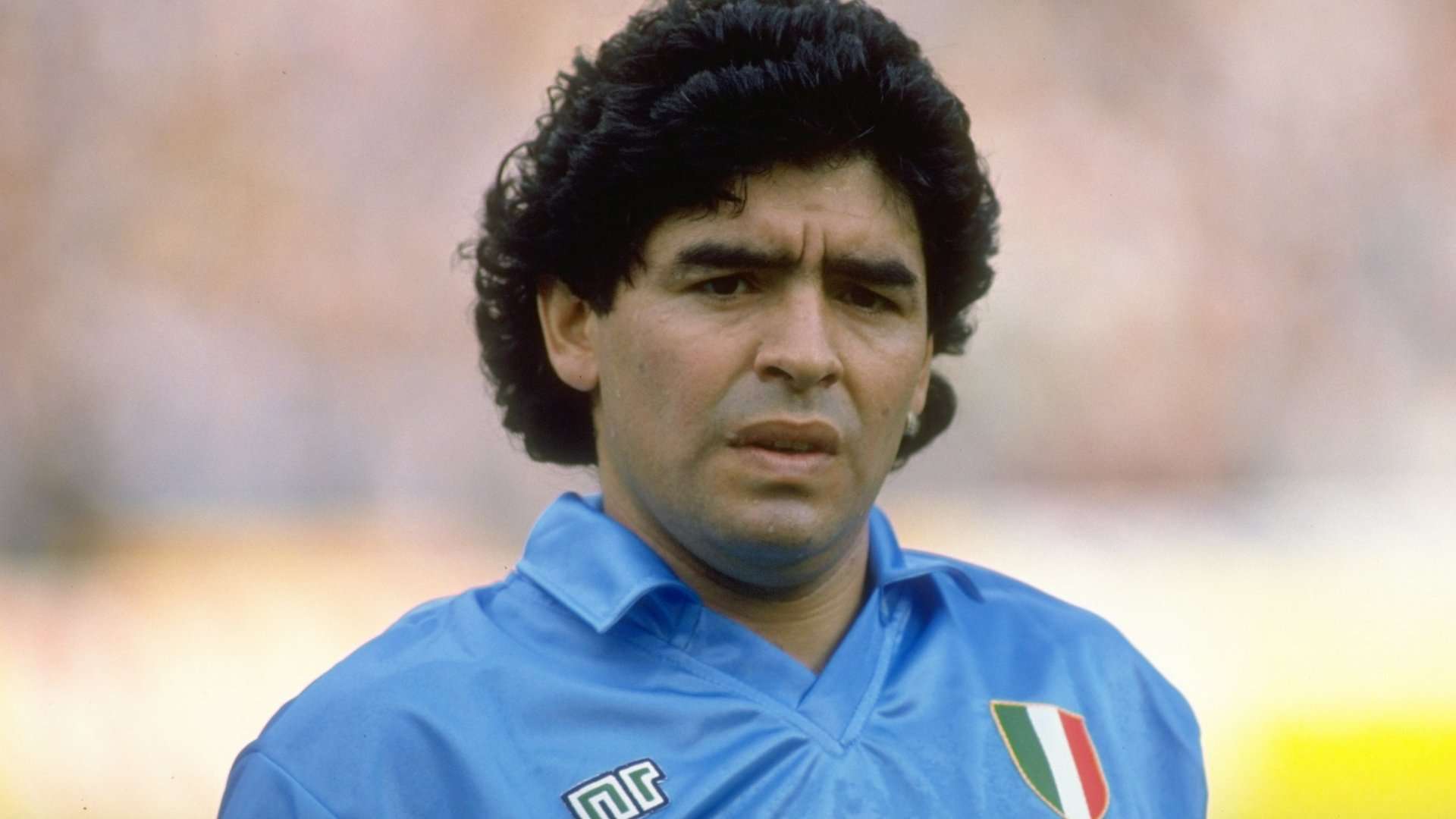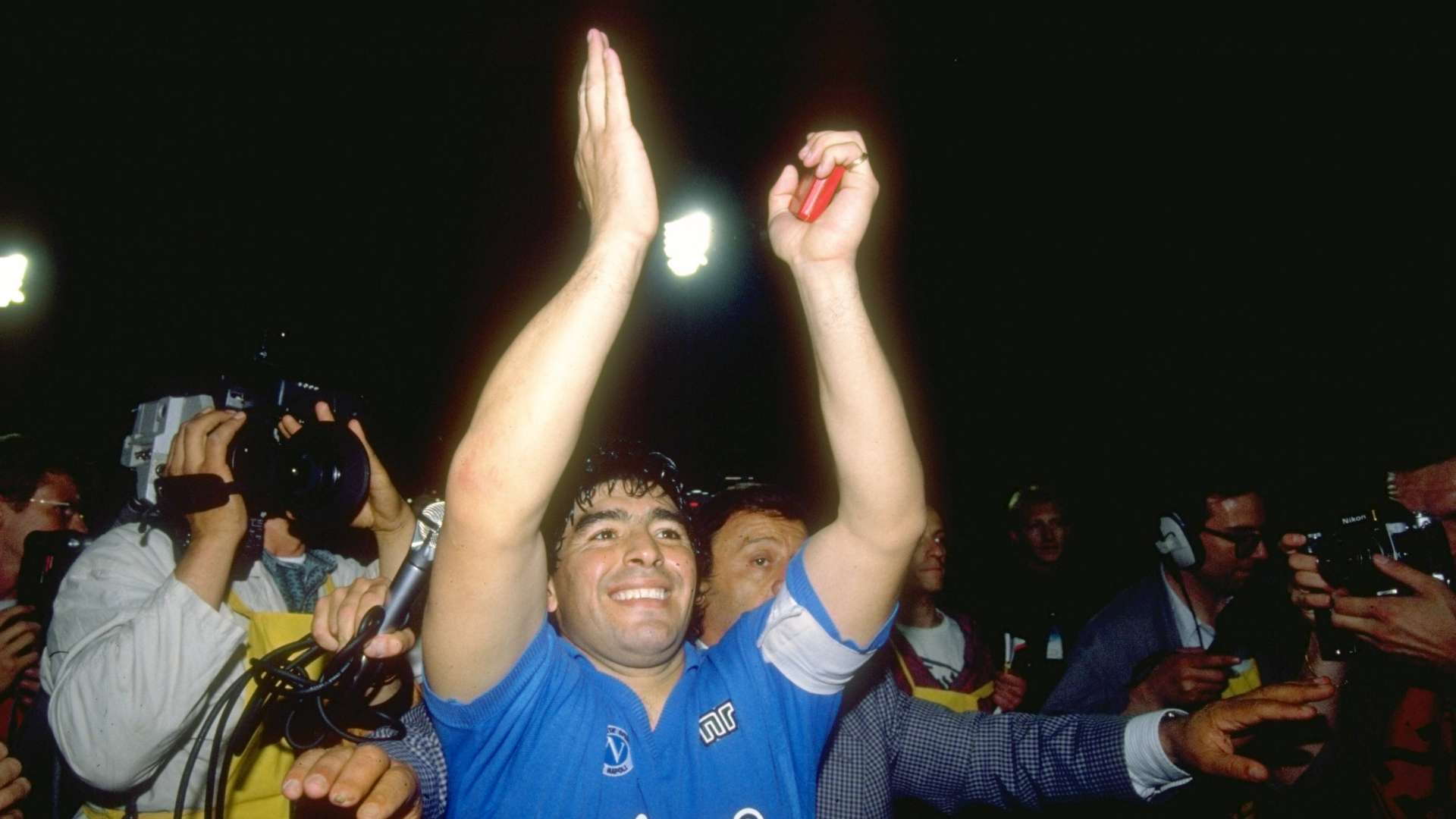“The world had changed. The noisiest, most crowded and most chaotic city in Europe was deserted.” Those were the poignant words of Italian anthropologist Amalia Signorelli when describing Naples on the afternoon of May 10, 1987.
In the shadow of a dormant Mount Vesuvius, an entire city would eventually erupt as Napoli secured their first ever Serie A title, some 61 years after they came into existence.
The jubilation was so intense that one fan even took it upon themselves to write "You don't know what you're missing!" on the walls of a local cemetery.
Not only was it a monumental moment for Napoli, but indeed the entire south of Italy rejoiced as they claimed long-awaited bragging rights over their bitter northern rivals.
The likes of AC Milan, Juventus and Inter had long dominated football in Italy, with class tensions between the north and south often exacerbated by the national game.
Next Match
But on a joyous night in Naples the tables had finally been turned, with Argentina legend Diego Maradona pulling the strings in a truly unforgettable season that was many years, and certainly more than one man, in the making.
While Maradona's arrival at the San Paolo in 1984 from Barcelona can be seen as the catalyst for Napoli's ultimate success, the fact it would take the club three years to lift the Serie A title with him pulling the strings highlights the fact that many other pieces of the puzzle still needed to be put together.
Maradona's first season in Italy ended in underwhelming fashion as Napoli finished eighth in Serie A – 10 points shy of surprise champions Hellas Verona. His second campaign would show signs of improvement as the Partenopei forced their way up to third.
 Getty Images
Getty Images
While the squad itself was still finding its feet, their Argentine star took very little time to settle in as he quickly justified the God-like worship he was greeted to upon his arrival in Naples.
In his first Serie A campaign, Maradona found the back of the net on 14 occasions – only four fewer than Capocannoniere winner Michel Platini. The goals continued to flow the following season as he struck a further 11 times as Napoli began showing signs of being a true Scudetto contender.
But it would not be until the 1986-87 season that everything started to click in Naples and the club set out on ending their league drought in dramatic and cathartic fashion.
-
How Giroud fired Montpellier to stunning Ligue 1 title
-
How unfancied Nigeria beat Ronaldo & Crespo to win Olympic gold
-
How Greece's new Gods ended Ronaldo's Euro dream
Coached by a fiery but pragmatic Ottavio Bianchi, who only five years earlier claimed a Serie C title with Atalanta, Napoli boasted a well-rounded squad with Maradona stitching it all together.
Centre-back Ciro Ferrara was hitting his stride after coming through the club's youth ranks, while the summer signings of Fernando De Napoli and Andrea Carnavale both proved successful.
De Napoli, along with fellow midfielder Salvatore Bagni, worked tirelessly across the pitch to ease the burden on Maradona, which allowed him to focus his efforts on the final third.
In front of goal, Maradona would lead the way with 10 strikes, but he by no means carried the team in attack with Carnavale adding eight goals and Bruno Giordan six.
 Getty
Getty
The Napoli faithful also played their part off the pitch, with the club not losing a single home league game across the 1986-87 season. The San Paolo was the ultimate fortress, with title rivals AC Milan and Juventus both beaten 2-1 on crucial visits to the south.
Those six points would prove decisive in the end as Bianchi's side finished just three points clear of Juve to end their Serie A drought.
The resulting celebrations were as wild as anything even serial party-goer Maradona could have imagined, as citizens taxed themselves for extravagant free-for-all feasts on the streets and the entire city decided to collectively take the following day off work.
Mock funerals were also held for Juventus, complete with coffins and printed 'death notices' – a sign of just how intense that rivalry was at the time.
As Napoli celebrated the 'death' of the Turin giants, the club were only at the beginning of a fairytale that would see them go onto lift four more pieces of silverware in the years to come.
Maradona was, of course, again at the centre of their incredible rise to the top of world football, but as Napoli's Serie A triumph in 1987 underlines, it takes a whole city to stun a nation.

